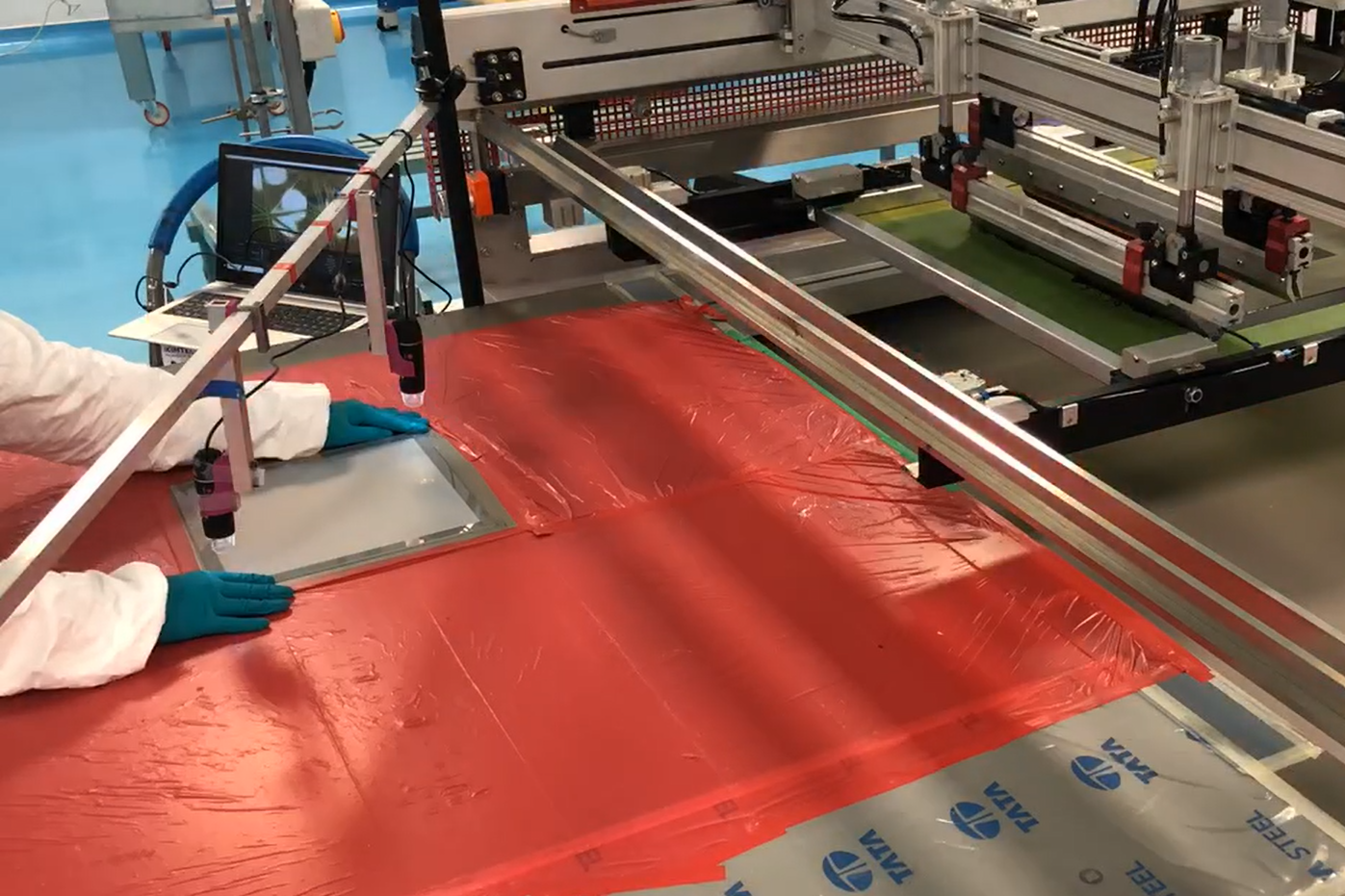A new initiative will develop local manufacturing capabilities of perovskite solar modules in Nigeria, Rwanda, Kenya, and South Africa. Ultimately, the project plans to establish the first full-scale demonstration of next-generation solar manufacturing in Africa while maximising sustainability and empowering local communities.
Funded by the UKRI Ayrton Challenge Programme, REACH-PSM (Resilient Renewable Energy Access Through Community-Driven Holistic Development in Perovskite Solar Module Manufacturing) is a £3m award led by Swansea University. The project is being developed in collaboration with universities, businesses, and local communities in Nigeria, Rwanda, Kenya, and South Africa with the aim of producing an inherently more sustainable solar technology.
REACH-PSM follows on from the work already being carried out by two existing programmes at Swansea University. The TEA@SUNRISE project and UNESCO Chair in Sustainable Energy Technologies are both focused on the manufacture and use of sustainable, next-generation solar technologies in low- and middle-income countries.
Why localised solar manufacturing in Africa could be a game-changer
Over 500 million people in Africa do not have access to electricity, a figure which has increased in the last few years. Traditional energy sources are expensive, environmentally damaging, and dependent on external supplies. However, current renewable energy technologies aren’t always suited to local contexts and can result in large amounts of waste, particularly from end-of-life solar modules. Furthermore, manufacturing traditional silicon solar panels needs significant capital costs and is an energy intensive process.
Perovskite solar cells are an exciting emerging solar technology on the cusp of commercialisation. In comparison to silicon, they could be manufactured at lower cost and with less energy. They can also be made with more sustainable materials and processes, offering a more resilient and adaptable energy solution.
Thanks to their lower cost and use of local materials, perovskite solar modules have the potential to be manufactured locally in Africa. Localised production can empower communities by fostering energy independence and creating jobs. REACH-PSM also hopes to improve social welfare and drive new, clean economic growth within Africa.
Prof Matthew Davies, Principal Investigator of REACH-PSM, said: “Through REACH-PSM, we are bringing together world-class expertise in sustainable materials, photovoltaic technology, social inclusion, and local manufacturing to help revolutionise energy access and resilience across Africa. By developing perovskite modules that are not only efficient but also sourced and produced locally, designed for efficient end-of-life processes to avoid waste, we aim to empower communities, strengthen supply chains, and help usher in a more equitable, low-carbon energy future.”
Importantly, establishing a new manufacturing process means it can be designed for a circular economy from the outset. A key element of the project will be to develop efficient end-of-life treatment to minimise waste, and maximise the circular flow of materials through reuse, refurbishment, and recycling of solar modules.
Co-creating solutions to maximise impact
Finally, the project will prioritise co-creation of sustainable business models and products, collaborating with local universities, businesses, and communities to make sure they are suitable and appropriate for local conditions. REACH-PSM universities include:
- Federal University of Technology Owerri, Nigeria
- Egerton University, Kenya
- Strathmore University, Kenya
- University of KwaZulu-Natal, South Africa
- North-West University, South Africa
- University of Cape Town, South Africa
Three African companies specialising in sustainable energy technologies are also part of the collaboration: Hinkley Recycling from Nigeria; SLS Energy from Rwanda; and Kijani Testing from Kenya.
Frances Wood, UKRI International Director, said: “The Ayrton Challenge Programme demonstrates the power of research and innovation to address critical global challenges. These projects exemplify how equitable, interdisciplinary collaboration can unlock transformative solutions, ensuring a sustainable and inclusive energy future for all.”

